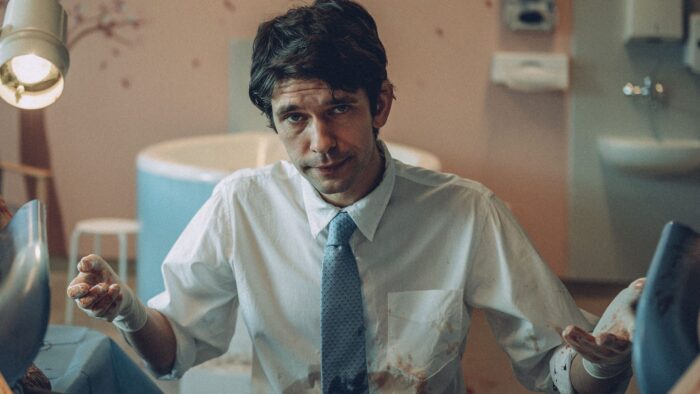First look UK TV review: This Is Going to Hurt
Review Overview
Cast
8Candidness
8David Farnor | On 08, Feb 2022
There’s something almost impossibly British about Ben Whishaw. Polite, softly spoken, slightly pained and quietly resilient, he’s perfectly equipped for playing national treasures on screen, whether it’s John Keats, Q or Paddington. Now, he’s stepping into the role of another national treasure: the NHS.
Based on Adam Kay’s memoir about his life as a junior doctor, This Is Going to Hurt is a matter-of-fact statement as much as it is a wry play on the comforting remark doctors often make to patients – because what unfolds on screen is not only painful for us to witness but also surely harmful for the doctors themselves.
Whishaw plays Kay with every ounce of his being, at once committed and immersed in the junior doctor’s dedication to helping others and borderline wiped out by it; you get the impression that he could blow away down the street at any second. Except, of course, he rarely gets time to go outside, as his long hours and staff shortages mean that he’s chained to the hospital more often than not. Working on the labour ward, he’s surrounded by heartwarming births and miracles of life popping into existence – but he’s also knee-deep in messy surgeries, complicated situations and frequent life-and-death decisions, all of which have to be navigated on barely any sleep, fuelled by coffee and nights of napping on his front seat in the car park.
The toxicity of the environment is immediate from the off, as Adam strives to get approval – and professional advancement – from the consultant, Mr Lockhart (played to withering perfection by Alex Jennings), while tolerating dismissive and patronising remarks. Then, he passes that on in kind to senior house officer (read: junior level training role) Shruti (Ambika Mod). Mod makes what could have been a thankless supporting character an essential part of the show’s gut-wrenching impact, as she captures the intelligence and intent required to make it as far as she as, but also the frustration and vulnerability of her position at the hospital, not to mention how resilience in the face of occasional racial abuse.
She has a winning chemistry with Whishaw that seamlessly moves between resentment and respect, the two often intertwined as they find an unspoken solidarity in just getting through each shift – an ordeal and achievement that requires no small amount of gallows humour. For Adam, there’s the added pressure of keeping his relationship with his boyfriend secret, as he’s worried about the backlash it might have on his career. But the biggest challenge arrives early on, as a harrowing event begins to haunt him, leaving him unsure about any of his diagnoses and afraid of making the wrong call.
The ensuing uncertainty eats away at us as much as him, thanks to a recurring fourth-wall-breaking device that in another show would feel cliched but here feels strikingly unique, compared to the more conventional hospital dramas that populate our screens and even the zany self-aware comedy fo Scrubs. Because no matter what ails us, when we go to the doctors, we don’t usually expect to hear about their lives and problems – they’re there to treat us, usually without thanks. This Is Going to Hurt shatters that patient-doctor divide with a candid sarcasm and blunt trauma.
The result is entertaining, gripping, shocking and moving, often all at once. Arriving after years of funding cuts and staff shortages, and the more immediate pressures of the Covid-19 pandemic, it’s a frank state-of-the-nation drama that sits alongside BBC One’s The Responder as a scathing snapshot of the working conditions within our public services – and an ode to the heroes weathering them that resonates far more than people clapping on doorsteps ever could. “Please look after this bear” were the words that accompanied Paddington when he arrived on our screens. Whishaw’s latest national treasure deserves the same care and respect.
















